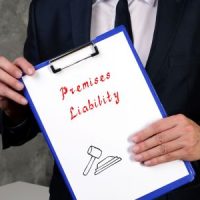Foreseeability And Premises Liability In Florida

Florida’s premises liability laws are designed to protect people who are injured on another person’s premises, establishing that business owners or landowners owe a duty of care to the people who visit them for various different reasons. If someone is injured on another person’s land, or in their business, they have the right to file suit against the owner or operator and allege that they breached that duty of care. A legal concept called foreseeability can often make a difference in whether a lawsuit will succeed or fail.
Status Matters
Florida premises liability law seeks to hold negligent landowners or business owners responsible for not properly making their land safe for people who visit. In general, property owners are required to uphold a certain level of care for those who come to their home or business, though the standard does vary depending on the status of the visitor. There are three main categories for visitors under Florida law, each with their own standard of care.
- Invitees are those who are visiting the land for business with the owner (or ‘public business’). Examples would include visitors to an amusement park or public museum. These people are owed the highest duty of care; the premises’ owner must maintain them in a reasonably safe condition, and warn the invitee of dangers that they know of (or should have known of), if they cannot correct them.
- Licensees are similar to invitees, and specifically invited licensees like social guests get the same protections as invitees. Uninvited licensees are on the premises for business of their own. They are not unwelcome, but neither are they specifically invited – an example would be a child going into a neighbor’s yard to retrieve a toy.
- Trespassers are somewhat self explanatory – people who are on the premises by sufferance. Both trespassers and uninvited licensees are owed a lesser duty of care – the landowner must only refrain from inflicting “wanton or willful injury.”
Foreseeability Often Triggers Liability
A different duty of care is owed to each visitor to another person’s premises, which means that sometimes, an actionable injury to one person is an unfortunate accident for another. However, there are two factors that have to be considered when determining whether a person is liable for an injury on their premises, regardless of status – reasonableness and foreseeability. The latter in particular can sometimes absolve a landowner of liability, because if an injury is not foreseeable, a landowner cannot be expected to have prevented it, and no duty of care existed.
It is important to differentiate between foreseeable and unforeseeable injuries. For example, in the case of Post v. Lunney (1972), a woman sued the owner of a home that was open to the public during a tour after she tripped on a rug protector and broke her hip. This injury was foreseeable because during tours, people were walking around the home without looking carefully at where they were going. However, if Ms. Lunney had been injured, say, by a brand-new light fixture falling on her head, that injury would generally not have been foreseeable, and Mrs. Post would not have been on the proverbial hook, even though Ms. Lunney was an invitee and owed the highest duty of care.
Contact A Tampa Premises Liability Attorney
If you have been injured on another person’s premises, and you suspect that they breached the duty of care in allowing your injury to happen, contacting a Tampa premises liability attorney can help ensure any questions you have are answered. The Rinaldo Law Group has handled many of these cases, and is happy to try and assist you with yours. Contact our office today at (813) 831-9999 for a free consultation.
Source:
floridabar.org/the-florida-bar-journal/premises-liability-a-notable-rift-in-the-law-of-foreseeable-crimes/












